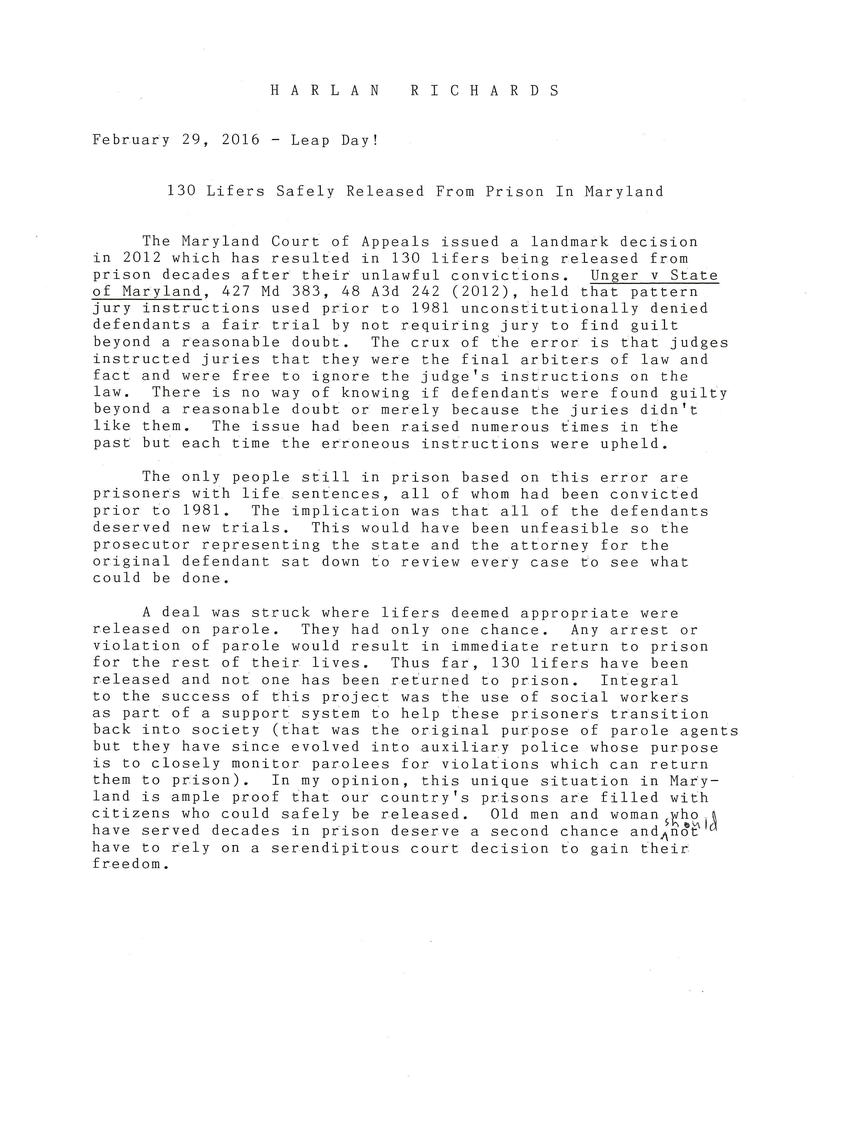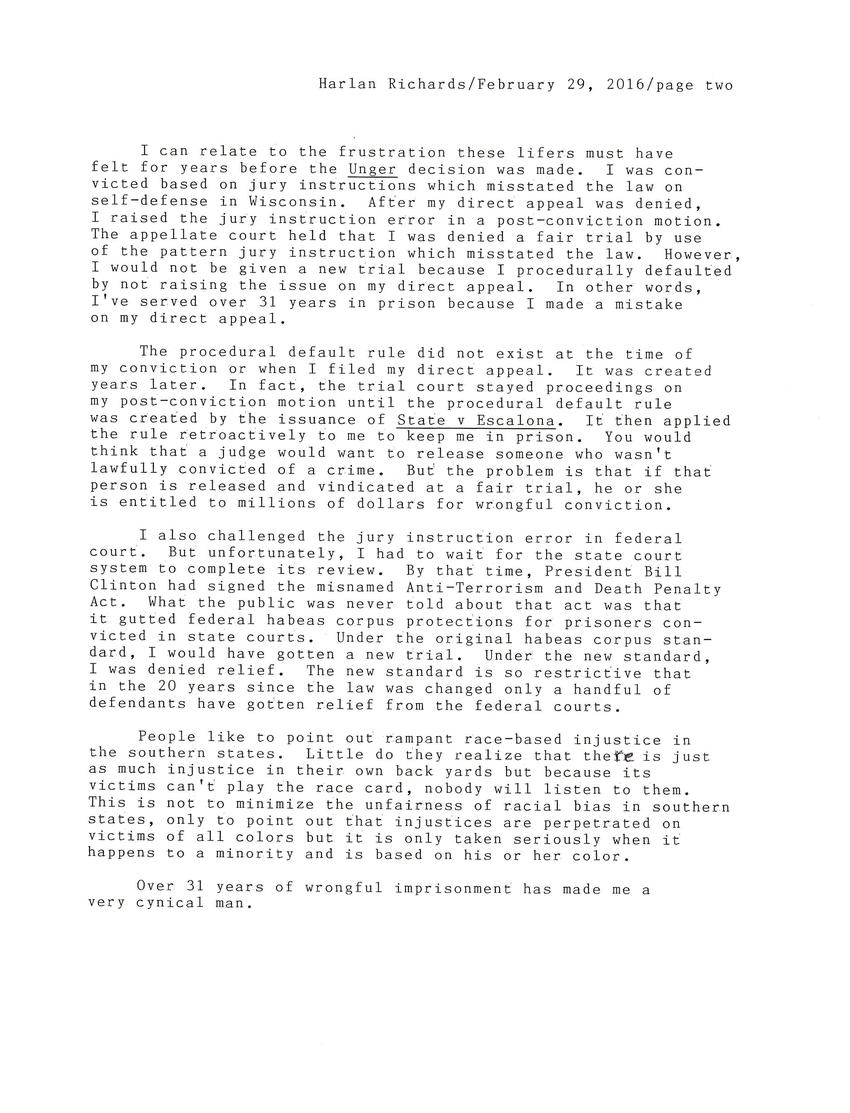
Transcription
H A R L A N R I C H A R D S
February 29, 2016 - Leap Day!
130 Lifers Safely Released From Prison In Maryland
The Maryland Court of Appeals issued a landmark decision in 2012 which has resulted in 130 lifers being released from prison decades after their unlawful convictions. [underlined text begins] Unger v State of Maryland, [underlined text ends] 427 Md 383, 48 A3d 242 (2012), held that pattern jury instructions used prior to 1981 unconstitutionally denied defendants a fair trial by not requiring jury to find guilt beyond a reasonable doubt. The crux of the error is that judges instructed juries that they were the final arbiters of law and fact and were free to ignore the judge's instructions on the law. There is no way of knowing if defendants were found guilty beyond a reasonable doubt or merely because the juries didn't like them. The issue had been raised numerous times in the past but each time the erroneous instructions were upheld.
The only people still in prison based on this error are prisoners with life sentences, all of whom had been convicted prior to 1981. The implications was that all of the defendants deserved new trials. This would have been unfeasible so the prosecutor representing the state and the attorney for the original defendant sat down to review every case to see what could be done.
A deal was struck where lifers deemed appropriate were released on patrol. They had only one chance. Any arrest or violation of parole would result in immediate return to prison for the rest of their lives. Thus far, 130 lifers have been released and not one has been returned to prison. Integral to the success of this project was the use of social workers as part of a support system to help these prisoners transition back into society (that was the original purpose of parole agents but they have since evolved into auxiliary police whose purpose is to closely monitor parolees for violations which can return them to prison). In my opinion, this unique situation in Maryland is ample proof that our country's prisons are filled with citizens who could safely be released. Old men and woman who have served decades in prison deserve a second chance and should not have to rely on a serendipitous court decision to gain their freedom.
Harlan Richards/February 29, 2016/page two
I can relate to the frustration these lifers must have felt for years before the [underlined text begins] Unger [underlined text ends] decision was made. I was convicted based on jury instructions which misstated the law on self-defense in Wisconsin. After my direct appeal was denied, I raised the jury instruction error in a post-conviction motion. The appellate court held that I was denied a fair trial by use of the pattern jury instruction which misstated the law. However, I would not be given a new trial because I procedurally defaulted by not raising the issue on my direct appeal. In other words, I've served over 31 years in prison because I made a mistake on my direct appeal.
The procedural default rule did not exist at the time of my conviction or when I filed my direct appeal. It was created years later. In fact, the trial court stayed proceedings on my post-conviction motion until the procedural default rule was created by the issuance of [underlined text begins] State v Escalona [underlined text ends]. It then applied the rule retroactively to me to keep me in prison. You would think that a judge would want to release someone who wasn't lawfully convicted of a crime. But the problem is that if that person is released and vindicated at a fair trial, he or she is entitled to millions of dollars for wrongful conviction.
I also challenged the jury instruction error in federal court. But unfortunately, I had to wait for the state court system to complete its review. By that time, President Bill Clinton had signed the misnamed Anti-Terrorisism and Death Penalty Act. What the public was never told about that act was that it gutted federal habeas corpus protections for prisoners convicted in state courts. Under the new standard, I was denied relief. The new standard is so restrictive that in the 20 years since the law was changed only a handful of defendants have gotten relief from the federal courts.
People like to point out rampant race-based injustice in the southern states. Little do they really that there is just as much injustice in their own back yards but because its victims can't play the race card, nobody will listen to them. This is not to minimize the unfairness of racial bias in southern states, only to point out that injustices are perpetrated on victims of all colors but it is only taken seriously when it happens to a minority an is based on his or her color.
Over 31 years of wrongful imprisonment has made me a very cynical man.
Other posts by this author
|
2021 jun 25

|
2021 may 25

|
2021 apr 23

|
2021 feb 19

|
2021 feb 17

|
2021 feb 15

|
More... |



Replies